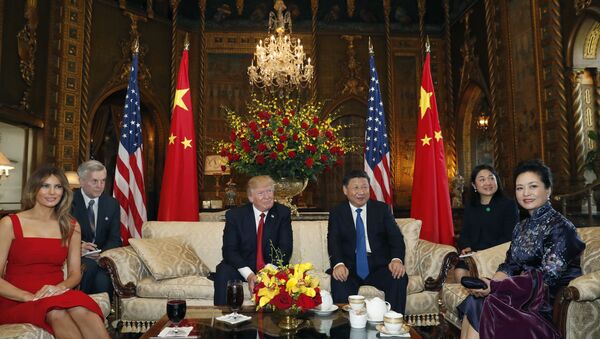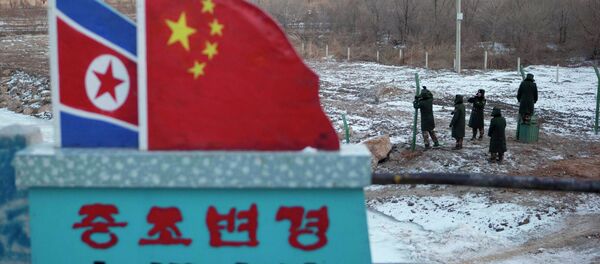On Monday, Japanese media reported that Chinese President Xi Jinping had asked US President Donald Trump in April for a period of 100 days to strengthen its sanctions against North Korea before Washington imposed any sanctions of its own on Chinese companies linked to Pyongyang.
The two sides agreed that the United States would wait 100 days for China to put pressure on North Korea over Pyongyang's missile and nuclear tests before adding Chinese companies to its sanctions list, the newspaper Asahi Shimbun quoted sources as saying.
U.S. aims to sway China on new North Korea sanctions after test: Haley https://t.co/vB1LDWm3dc
— Reuters Top News (@Reuters) 17 мая 2017 г.
Speaking to Sputnik, expert Yevgeny Zaitsev of Moscow State University suggested that China may use several options to try to exert pressure on North Korea.
He said that "undoubtedly, Beijing does not want to lose its leading role in resolving this crisis and it seeks to show itself as a peacekeeper."
"In this regard, I think that China can take the following steps. In addition to purely persuasive appeals and direct talks with the North Korean leaders, Beijing can put economic pressure on North Korea," Zaitsev said.
He recalled that "the economy of North Korea, to put it mildly, does not quite cope with the problems that are in place in this far from prosperous country."
"This set of economic problems that Beijing can help resolve in the interests of North Korea is an argument that Pyongyang should pay more attention to recommendations given by China's 'senior partners' with relation to North Korea," Zaitsev pointed out.
North Korea lodges protest against U.S. sanctions, sends rare letter to congress https://t.co/ctMsWeK239
— China National News (@china_national) 12 мая 2017 г.
As for the Beijing-Washington deal on North Korea, it was reportedly similar to a 100-day plan to discuss trade between the two countries, also agreed upon by Trump and Xi in April.
In early April, Trump suggested in an interview with the Financial Times that China should use its influence over North Korea, but Washington was prepared to act unilaterally if it did not secure Beijing's agreement on this issue.
China, in turn, has expressed disapproval of Seoul's decision to deploy US Terminal High Altitude Area Defense (THAAD) on its territory in response to the North’s missile and nuclear activity.
However, the floor leader of the South Korean ruling Democratic Party, Woo Won-shik, said last week that THAAD might be sent back to the United States due to its lack of parliamentary approval.
Never miss a story again — sign up to our Telegram channel and we'll keep you up to speed!




